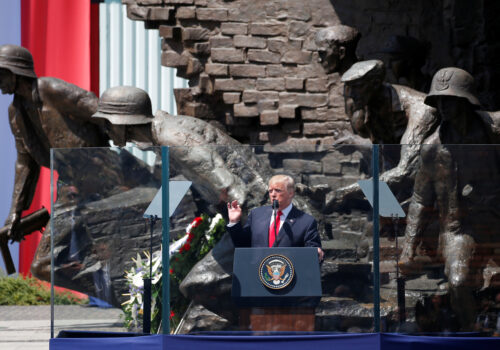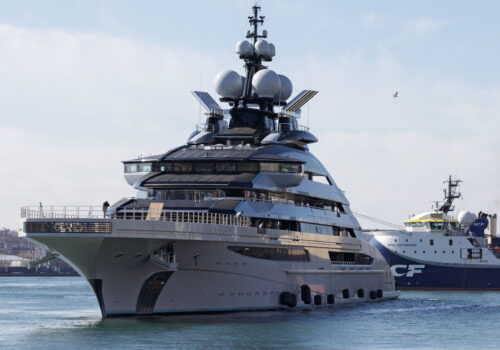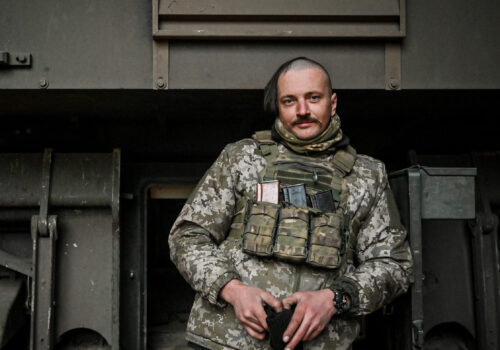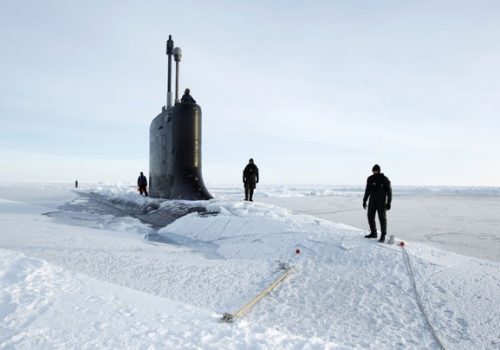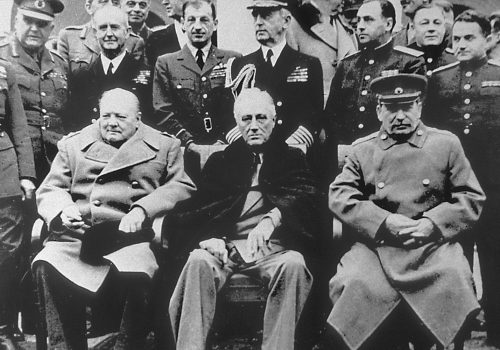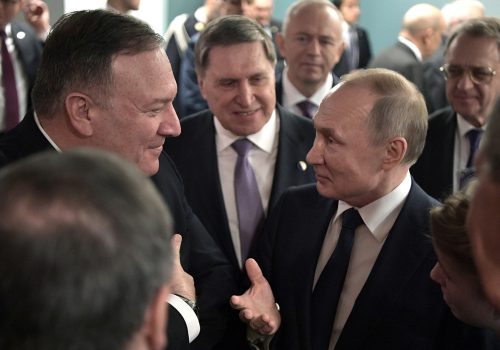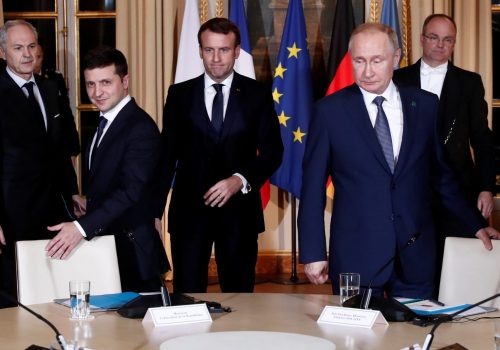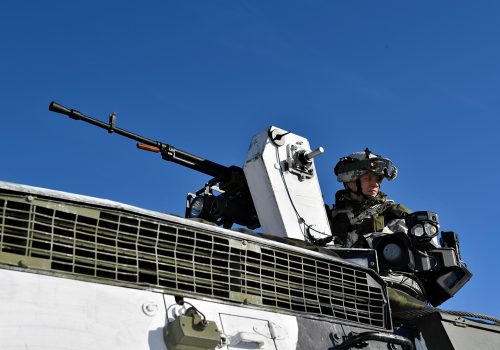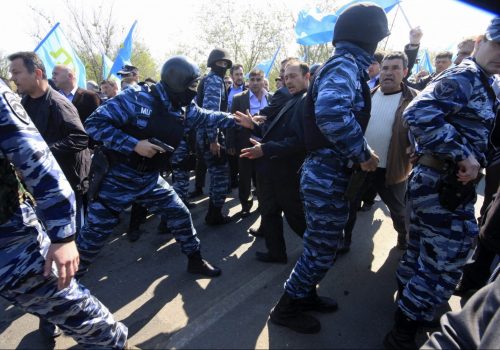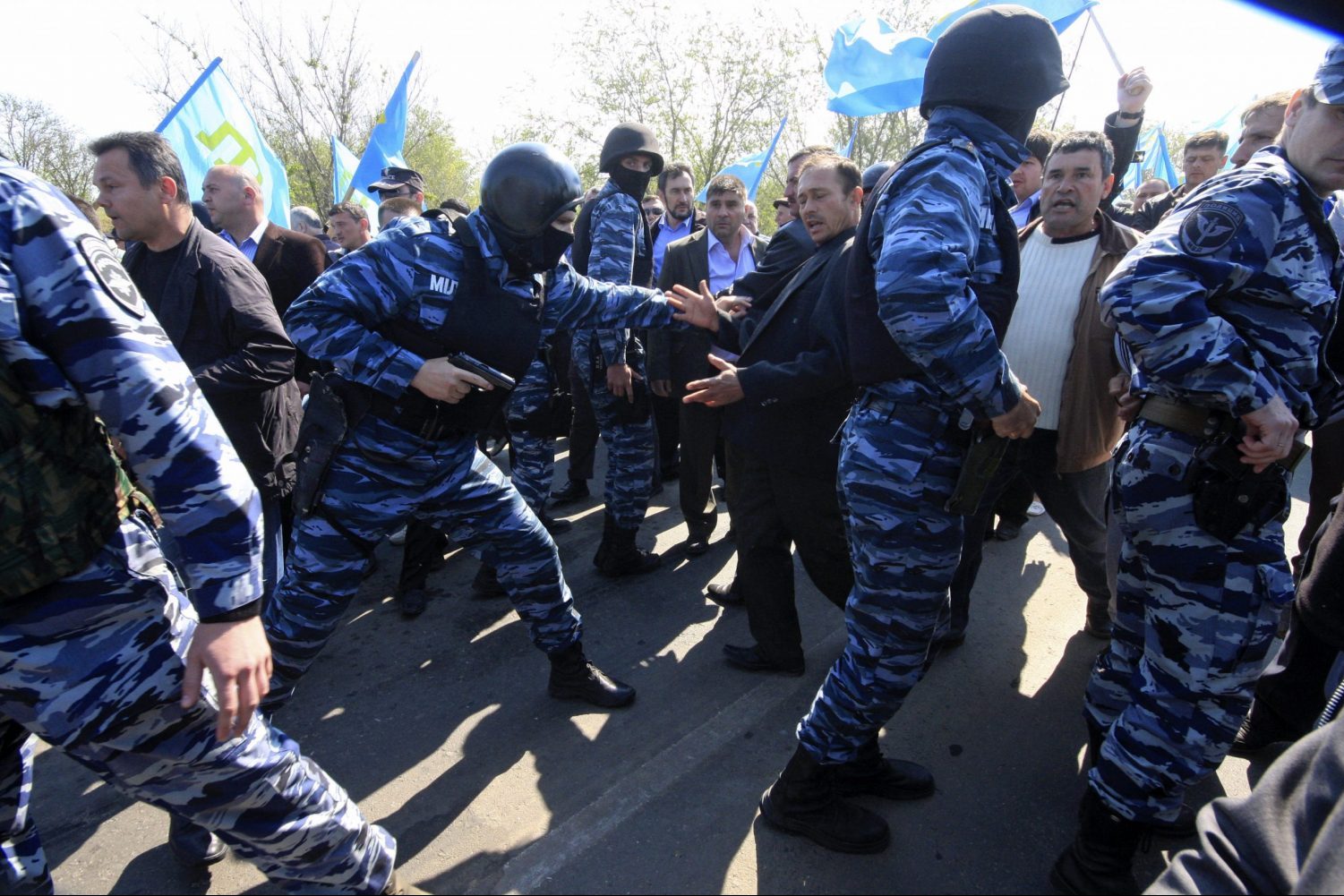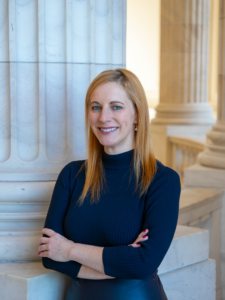issue spotlight

Europe in crisis
War in Ukraine
Experts from across the Atlantic Council are assessing the consequences of Russia’s February 2022 invasion, including what it means for Ukraine’s sovereignty, Europe’s security, and the United States’ leadership.
Stay updated
COMMENTARY & ANALYSIS
The Power Vertical
The Power Vertical is a blog and podcast for Russia wonks and Kremlin watchers by Brian Whitmore. It covers emerging and developing trends in Russian politics, shining a spotlight on the high-stakes power struggles, machinations, and clashing interests that shape Kremlin policy today.
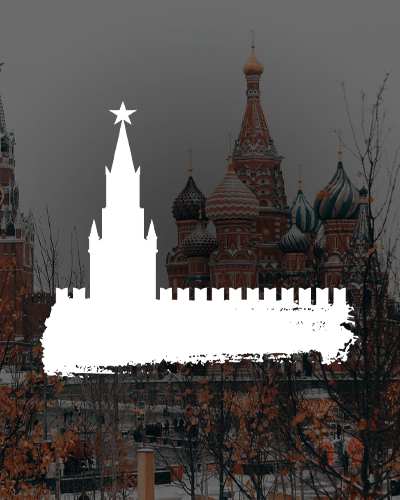
Host and Eurasia Center Senior Fellow Brian Whitmore invites guest experts to deliver their insights and analysis in this weekly podcast. The Atlantic Council and the Charles T. McDowell Center for Global Studies at the University of Texas at Arlington co-sponsor this production.
The Russia Tomorrow series
recent events

The Eurasia Center’s mission is to enhance transatlantic cooperation in promoting stability, democratic values and prosperity in Eurasia, from Eastern Europe and Turkey in the West to the Caucasus, Russia and Central Asia in the East.
